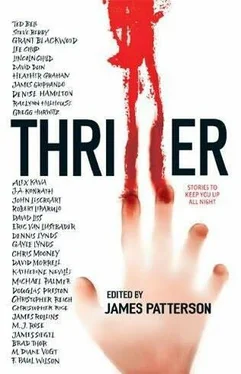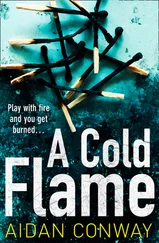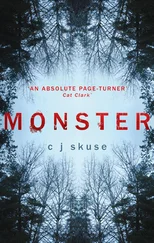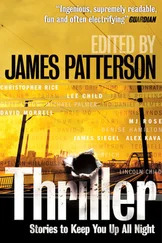The colonel made no explanation for his sudden return, sat in stony silence through the entire careful process. But his arrogant eyes bored through the junior officer with the clear implication that the colonel would remember this insult. The status of recognition is also part of an army too rigid with class and privilege.
"A thousand pardons, Colonel," the officer of the guard said, and returned the credentials with a smart salute.
Hareet drove on into the courtyard without even returning the salute. The junior officer swore under his breath at the back of the arrogant colonel.
Hareet parked his Jeep as close to the main entrance of the headquarters building as he could-a senior officer does not walk far. He jumped out as if impatient to get to some important task, strode rapidly to the entrance. Two majors reached the entrance a hair before he did-which he had arranged by slowing his pace. The majors both stopped and deferred to him. He waved them ahead with an impatient gesture of his swagger stick: asserting his rank, showing democratic largesse and distracting the guard at the front door.
The two majors hurried on into the building so as to not keep the colonel waiting. Not much more than an inch behind them, Hareet merely flashed his credentials to the guard. The guard, hurried by three credentials almost together, and the need to give three fast salutes, barely glanced at the tall colonel's identification.
Hareet was inside the building.
The long corridors were dim, cool and high-vaulted. Hareet strode loudly along the corridors until he located the office of the chief of supply. There was light under the door and the low sound of steady activity inside. As the peddler had predicted, the office of the chief of supply was working long and late this night.
Hareet walked into a lounge for officers only. He entered, went into the lavatory, and then into a booth. Inside the booth, he removed all his makeup. He changed his rank to major. He changed his insignia to that of an artillery unit stationed far to the south. He tore all the credentials of Colonel Aziz Ramdi into small pieces and flushed them down the toilet, removed the credentials for a major of a tank unit in the south from a thin pouch under his clothes. He flushed the pieces of the pouch. He remained in the lounge for an hour, absorbed in reading some important report.
Each hour, he walked back to check the office of the chief of supply. Twice, he went into the officers' dayroom and read a magazine. He drank the thick Turkish coffee the orderly served. In his normal appearance, there would be no one who could know him, as far as the peddler knew there were no officers from the distant artillery unit in the capital at this time, all field units being on twenty-four-hour alert.
At midnight, the office of the chief of supply was as dark and silent as all the other offices. As Hareet had been sure they would, all the officers from the chief of staff on down had gone to rest or party. Tomorrow would be a great day, tonight the building was quiet. Only the guards moved in the corridors of the headquarters.
Hareet waited until a guard had made his rounds of the corridor outside the office of the chief of supply. The corridor silent and empty, Hareet opened the door of the office with a picklock, slipped inside, his knife ready on the remote chance someone had been left behind, perhaps asleep.
No one had.
The door into the windowless file room was open. Hareet fitted a small light to his head and crouched to inspect the vault. It was a simple key-locked vault from British days such as the peddler had reported. Hareet picked the lock with no trouble, swung the door open.
The documents he needed were neatly filed in their proper places. The folders were sealed with a wire-and-plastic seal that had to be broken to open the folder. Hareet broke the seal and removed the documents. They felt faintly slippery to his touch. Tomorrow, ultraviolet light would reveal Hareet's prints, but that would not matter.
He photographed the documents with the miniature camera that had been hidden in the built-up heel of his boot. There were ten lists with maps and dated overlays. The overlays were all new and dated that day. Hareet photographed each document. They became faintly darker under the heat of his intense light. He unloaded the roll of microfilm and placed it in its container in his breast pocket.
He took a second roll of film from his other heel, reloaded the camera and took a second set of photographs.
He returned the documents to their files, resealed the folders as best he could, replaced the folders in the vault and relocked the vault.
He left the file room.
Behind the door of the dark office he sat at the general's desk, smoked a slow cigarette, looked around this high-level office of the enemy and waited for the guard to make his next round. It took a second and a third cigarette. He smoked deeply, enjoying the relaxation.
When the guard had passed, he slipped out of the office of the chief of supply, relocked the office door and walked openly again to the lounge for officers. Inside a booth once more, he sat and went to sleep with his head against the wall.
Dawn arrived soon after five o'clock that morning.
The building came slowly to life. Vehicles drove up and parked outside. Orders were shouted all through the courtyard and at the gates. The corridors echoed with the smart clicking of heels, and the morning greetings of the elite officers. Heavy-booted footsteps rang all through the building. Office doors opened and closed like the ragged sound of small artillery.
Hareet waited until just after six o'clock when the initial chaos had slowed to a steady sound of routine.
Inside the booth he took a large piece of wrapped halvah from his pocket, unwrapped it, and embedded the second roll of microfilm inside until it was completely covered with the soft confection.
He left the booth, went out into the lounge that was still empty at the early hour and returned to the corridor.
Hareet walked calmly toward the front door. Visiting officers were being checked in by the sleepy night-shift guards. Excitement and confusion were high at the door-the fever of impending war in any army. The day-shift guards were forming in the courtyard. The ragged fellahin servants were sweeping the courtyard, watering it down in preparation for the heat of the day to come.
Already the sun was up. It was going to be a dazzling day. Far across the courtyard at the front gate, Hareet could see the nightshift guards stretching the weariness from their bones, waiting for their relief. Vehicles coughed and sputtered in the morning air. The officers continued to pour in. No one was going out.
Hareet waited until the day-shift guards forming outside began to march to the posts to make the official transfer with the night-shift guards. He placed his pistol in his pocket, checked the film in his breast pocket, and when a large group of officers came across the courtyard and approached the front entrance, strode out and walked straight up to the door.
The officers thronged in the entrance.
A guard turned around to check Hareet's credentials.
There was a faint click somewhere in the wall, and an alarm began to sound, echoing through the building and out across the courtyard. The guard at the door stared at Hareet.
Hareet stabbed him in the heart, held the man's body close against him, and walked out into the courtyard through the confused group of incoming officers.
For a long moment, as the alarm continued to sound through the headquarters and over the courtyard in the bright morning, the officers and guards milled around and shouted and no one noticed Hareet walking across the courtyard away from both the building and the front gate still carrying the dead guard upright against him as if they were hurrying together toward some important official duty.
Читать дальше












